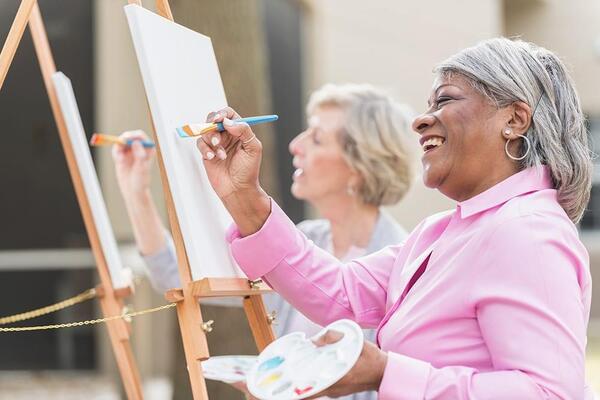
Great Extracurricular Activities to Keep Elderly Loved Ones Mentally and Physically Engaged
Families are built around loved ones. The multigenerational nature of a family means that there will be a host of memories, both pleasant and difficult, which make up a lifetime. Being that the natural flow of life comes with aging, there are certain elements that simply cannot be avoided as older generations age.
Physical and mental health are perhaps the most common and potentially concerning issues. While not everyone will have to go through difficult cases of disease or degenerative illness that accompany aging or a career in psychiatric health such as cancer, Alzheimer’s, or dementia, every child will have to learn how to begin caring for their parents' needs as they shift with age.
Nursing homes or in-home care services have become the common standard amongst our current modern societies, and as much as those services have their place and benefit in the complementary nature of their care, they can't be expected to meet every need. As a combined result of the want for good care, progressively complicated aging factors, and often lacking options within certain elderly care, many people have been asking the question of how to better attend to the graceful aging of elderly loved ones.
While there is potentially a slew of solutions, a quick and common answer is to encourage and provide a list of extracurricular activities that are easily accessible and participated in. The following are some ideas for how to keep elderly loved ones mentally and physically engaged as they age.
Aging’s Effect on the Body
Memory loss is one of the most common and depressing symptoms associated with aging. The commonality of this factor means that there are a lot of initiatives and advanced research that has and is being done in the study of mental health degradation. However, while that research is great and necessary, it is often slow and not immediately accessible to many people.
Interestingly, much of that research has shown is that memory loss, while a staggeringly complex function, typically has a very common factor which contributes to degradation: lack of use.
People that are not actively and consistently using their brains to engage in social, intellectual, or physical exercises show a drastic decline in memory and motor skill function. The old adage, “If you don't use it, you lose it”, really does count. Luckily, some of the potential solutions to staving off old age are just as simple and easy to participate in as choosing to be inactive: go do something fun and engaging. Really the only trick to this is having the courage, drive, and desire to seek out opportunities and people to participate in.
Therefore, senior care facilities must be more than just places of residence—they should be active environments that promote mental and physical engagement. Establishing clear communication in senior care settings helps ensure that the services provided align with each resident’s personal history and preferences. When staff, families, and residents are all in sync, the quality of life in these facilities improves significantly.
Mentally Engaging Activities
Memory Games and Puzzles
Sudoku, scrabble, crossword puzzles, trivia, and jig-saw puzzles are just a few examples of ways in which people can easily, affordably, and simply spend some time maintaining mental health. Many of such games don't require much skill to learn but have enough of a challenge that they can take years to master, thus, the level of engagement grows with the individual and helps to maintain engagement over the years.
It is easy to find and buy cheap sudoku, or crossword like games and local grocery stores or for free in a local newspaper; puzzles can sometimes be rented from libraries or community centers, or, better yet, borrowed from a neighbor. Additionally, many of these classic games can be found in app forms on computers, tablets, and cell phones. Not only that, if someone gets bored of a classic style, there are now hundreds if not thousands of variations of such programs, so the supply is nearly endless.
All that it takes to keep one's mind sharp is eating right, exercising, and playing a few games. Not a bad way to take care of oneself.
Physical Activities
The body and the mind are inseparable. If one starts to break down then, the other usually follows suit. While physical decline in the elderly is inevitable, there are ways to slow and stave off the rapid progression of age-related decline. Physical activities are, as they always have been, one of the best ways to keep people of any age mentally and physically engaged.
Depending on the age of the individual, the state of their physical health, and their interests, physical activities can be a challenge. The good news is that there are plenty of ways for people of many different physical capacities to still be active.
Common extracurricular activities such as taking a walk or going for a bike ride have been shown to be wonderfully beneficial to health. Yoga, Tai Chi, and aqua aerobics, are some gentler versions of movement for those with some pain or mobility issues. Regardless of the state of one's physical health there is a physical activity that can be found to suit and support healthy aging.